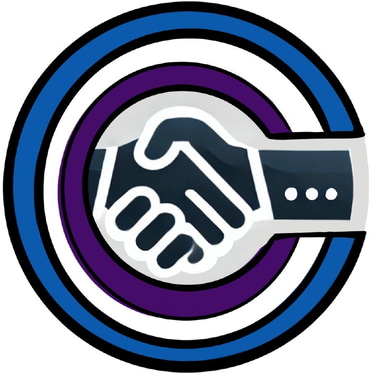Meeting with a Marketing Expert /Entrepreneur
For all creative people out there - check out what our guest Jim Therkalsen shared with us! #MichiganRoss #UMich #Meta #Facebook #AG1
Elina Kamensky
10/27/20252 min read


Jim’s path from traffic coordinator to copywriter to creative leader shows that you can break in by doing the unglamorous work, build range across media, and let curiosity pull you into new skills. He urges students to start local, make real things, learn the core tools, and read a lot!
The quote I loved:
“Start local - help a real business today and put the work in your portfolio tomorrow.”
Actionable advice:
Find your lane by doing the job after hours: I addition to your regular tasks, ask for small, unwanted assignments to get your foot in the door. Use your free time for these extra jobs and deliver on them - this will get you noticed. When you start your career, be ready to pay your dues - it’s likely you won’t have a great work-life balance, but that’s how you learn quickly and establish your reputation in the company.
Build a portfolio that shows range: To be a well-rounded marketing specialist learn how to do storytelling, build experience, evaluate effectiveness of a campaign. There are many aspects of a cohesive campaign - copywriting, TV, print, digital, app building, social media. With every new role it felt like going back to school.
Learn the tools you’ll actually use:
Design and prototyping: Figma, Adobe Photoshop/Illustrator/InDesign, Canva.
Video: Adobe’s editing tools or native IG/TikTok editors for speed.
Everyday stack: Google Slides, Docs, Sheets, Keynote.
Treat AI as a force multiplier. Use it to comp visuals for pitch decks in minutes instead of hours. Iterate more ideas faster, but finish with proper design craft for press-ready work.
Get real-world experience right now: DM on LinkedIn, offer to run social for a neighborhood business, propose 4 weeks of Reels and basic analytics. Pitch a small redesign - menus, flyers, email templates - and measure outcomes. You can try finding at least one real client, like a library, café, florist - even if unpaid at first.
Study people, not just platforms: Psychology and brand strategy matter: who is the audience, why they care, and how messages shift by segment. Ask for or run simple audience insight surveys before you create.
Read and write like a pro: Read widely and write daily - headlines, scripts, captions. Bring 10 options to reviews and expect direct feedback.
Grow into leadership: As you rise, you guide more than you make - practice giving feedback and connecting projects across teams. Coach juniors even when you could “do it in 15 minutes” yourself.
Be realistic about internships: Big brands rarely host high school interns in marketing. Local wins: work directly with owners, learn faster, and avoid getting lost in a big machine.
Try entrepreneurship with eyes open: Have a clear vision, a tight deck, and a plan to do everything at the start. Time is the true cost - choose ventures you’re willing to live with.
On Meta experience: Unlike at a typical agency, Meta’s employees seem to be all type A people, super dependable, really smart, able to work autonomously. They are serious about career management and reviews.
On Michigan business school experience: That was a good school that gives a pretty good networking. A lot of different kinds of people can thrive there but you have to be ready to work really hard or be really gifted and smart.
Final takeaway: College names are nice, but what really matters is your work. Learn the tools, make real projects for real people, and use AI to move faster without getting sloppy. If you build a solid, creative portfolio and keep practicing, you’ll be ready for any job- even as the industry changes.
